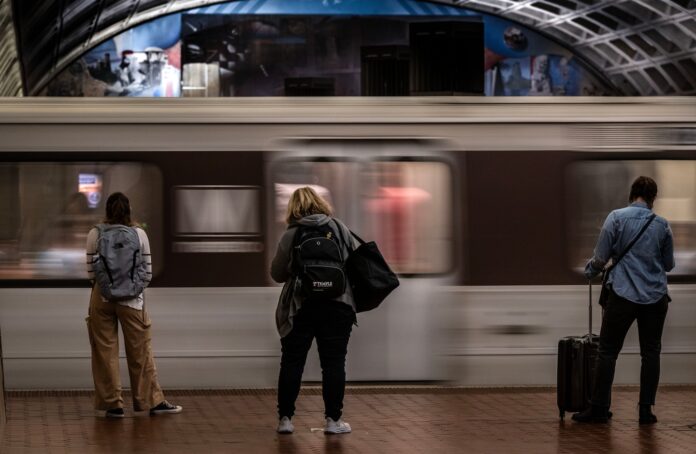A report released this week by the agency reflects what has been apparent for more than a year: Metro’s chronic funding problems are approaching a red alert that will mean drastic service cuts unless the region’s elected officials, along with Congress, devise a fix. So far, those leaders prefer to point fingers rather than press for the fresh funding that many major transit systems elsewhere have received, in recognition of a simple fact: As the connective tissue of the regions they serve, letting them wither and die is not an option.
Like police, fire and ambulances, transit networks everywhere are public services, largely funded by dedicated taxes and fees that supplement passenger fares and other revenue, such as advertising, raised by the systems themselves. Metro is the exception. It was born a beggar, with no ironclad, earmarked source of income, and remains one today.
It lives from year to year on the forbearance, and calculation, of politicians in a balkanized region called on periodically to negotiate new funding sources. Officials and lawmakers in the District, Virginia and Maryland — who often barely know their counterparts or belong to rival political parties — are expected to join forces to keep the whole thing afloat.
Even by the measure of Metro’s usual funding challenges, the current situation looks drastic as it approaches what officials refer to as a fiscal cliff. Its systemic budget problems have been compounded by pandemic-driven revenue shortfalls, inflation and the upcoming expiration of a federal bailout for transit systems. As things stand now, Metro faces a projected deficit of $750 million on an operating budget of $2.4 billion for the fiscal year starting next July.
That deficit can be shrunk in a variety of ways, and Metro has proposed to do just that. The main idea is to pay for current operating expenses by raiding capital funding for long-term upgrades, purchases and maintenance. In effect, that means borrowing against the future to patch the problems of the present, a poor but probably unavoidable strategy.
Yet even with that approach, plus a grab-bag of savings that Metro has devised — cutting short leases, dropping consultants and shifting their work in-house, leaving some jobs unfilled — the picture is grim. The agency might be able to whittle its deficit down to $200 million or $300 million, still a sizable gap.
Metro’s critics say it is inefficient and wasteful. In fact, it compares favorably by various measures to other transit networks around the country and has not been plagued by major recent scandals. It has grappled for years with safety and maintenance problems, stemming partly from underinvestment. But those have receded to some extent.
Metro’s weekly passenger count has been climbing lately but remains down by roughly a quarter from pre-pandemic highs. Owing to the prevalence of remote work in U.S. government agencies, the system has lost about two-thirds of the roughly 150,000 federal employees who once used its buses and trains on weekdays. President Biden has called on the federal workforce to get back to the office; his words have had little effect.
Yet it’s worth keeping in mind that even if Metro’s passenger count returns to its pre-pandemic peak — an outlook its chief executive, Randy Clarke, believes is likely sooner or later — the system’s budget deficits would not disappear: In that scenario, 75 percent of Metro’s current shortfall would persist in 2035. The funding formulas devised by Metro’s stakeholders and Congress simply do not provide the necessary budget support.
What’s more, some of Metro’s current deficit was imposed by Virginia, Maryland and D.C. They shortchanged the system in 2021 by withholding a share of their annual budget support during the pandemic, when the federal government stepped in with a relief package. The feds’ bailout is set to run out next summer, and the cumulative effect of that local subsidy shortfall accounts for more than one-quarter of next year’s projected deficit. The states and D.C. should repay those funds to the system.
Most of Metro’s users are happy with it, according to the system’s surveys. More to the point, they depend on it to get to and from work, recreation, shopping and school.
Sharp cuts to its budget, and the bus and rail service Metro provides, would not amount to punishment meted out to transit officials for alleged mismanagement, evidence of which is scarce. They would mean substantial and daily hardships for a large portion of the region’s residents and a major blow to the region’s downtown core and other commercial areas still reeling from the pandemic’s ravages.
Washington’s economic prospects are bound up with Metro’s. Over the coming 25 years, the region is forecast to add roughly 1.5 million people and 1 million jobs — jumps of 31 percent and 26 percent, respectively. It is folly to imagine they, or the national capital region, will thrive without a robust public transit system. Politicians should take note and provide the necessary funding.



